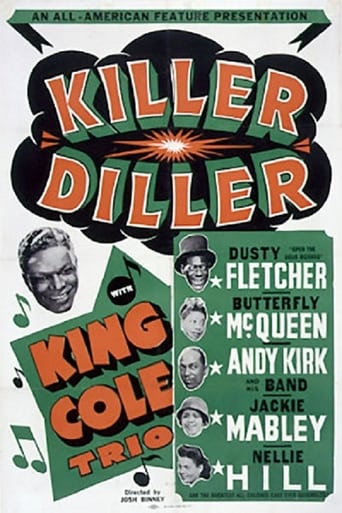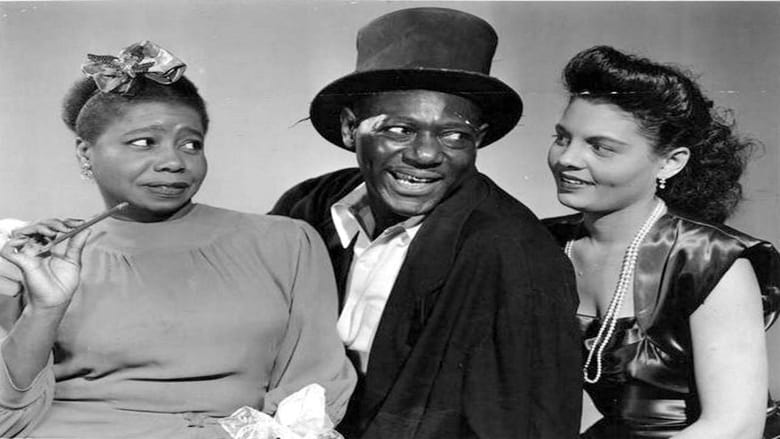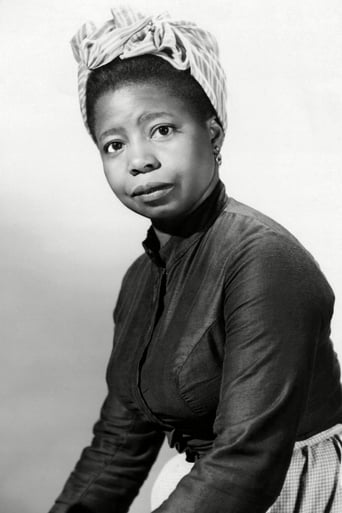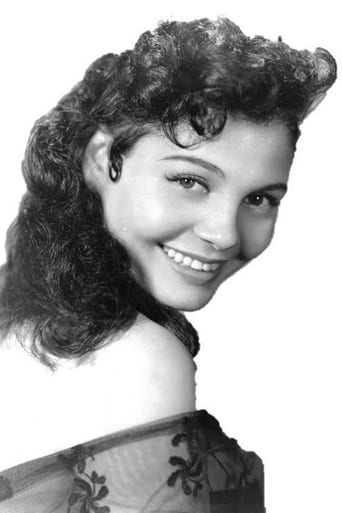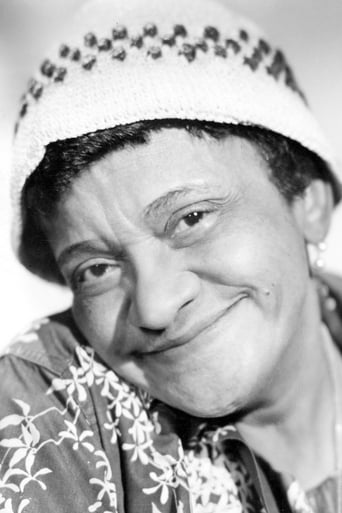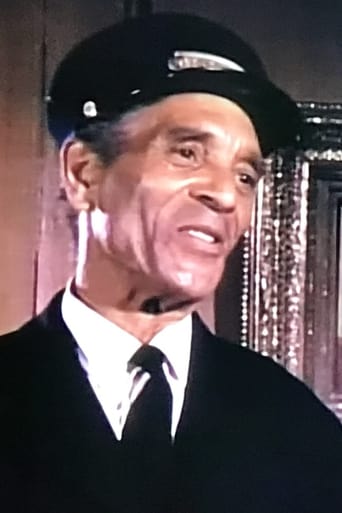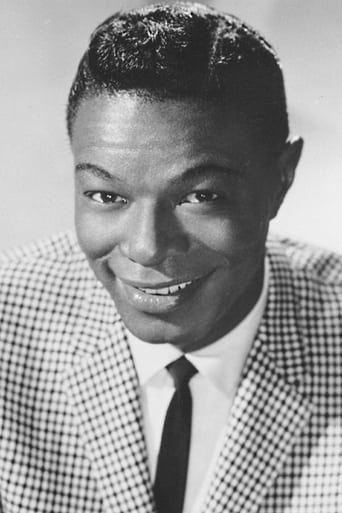An all-Black comedy and dance revue with stars of stage and screen.


Reviews
There are about ten acts from the 1940's that are well filmed. It was a pleasure seeing Nat King Cole and Moms Mabley so young. The rotund Patterson and Jackson steal the show with their crooning, dancing and imitation of the Four Inkspots. The Clark Brothers, a terrific tap dancing team, also bring the applause meter to a ten. The other acts aren't great, but the music is pleasant and nicely represents the Swing sound in the late 1940's. The beat occasionally sounds like early rock and roll. The line of dancing girls at the end is amusing to watch.About ten minutes of the hour is taken up with a poorly photographed story of a magician chased by the police for making a girl disappear. Butterfly McQueen appears in this This is on a 20 pack of musicals from Mill Creek which I picked up for $2.50. So far I've watched three: "Killer Diller," "All American Coed" and "Hi Diddle Diddle" and each is worth the price of admission.
Killer Diller is one of the hundreds of films Hollywood churned out in the Thirties and Forties with minimal budgets, usually limited skills with the behind-the-camera personnel and with all-black casts. As soon as the pictures were in the can they were sent out to play in the movie equivalent of the old vaudeville chitlin' circuit...movie theaters in the South that played to segregated black audiences and movie theaters in the north that played to almost exclusively black audiences. The movies might have been second rate but the artists seldom were. Hollywood might now be incessantly patting its back about how liberal and open- minded it is toward black actors (we won't get into the situation with Latinos), but a generation ago just about the only opportunity for talented and skilled black entertainers were in these unofficially segregated movies. If we want a better understanding of Hollywood movie-making, we need to see some of these films. For many of the entertainers featured, these films are the only record we have of what they could do. On the one hand, these movies make a sad and discouraging story. On the other, what wonders these artists could perform. Killer Diller has the slightest of story lines, something about Mortimer Dumdone (George Wiltshire), the impresario of a theater who is presenting a variety show, somehow seeing his fiancé, Lola (Nellie Hill) disappear in a magic trick with a string of expensive pearls around her neck. A fake magician (Dusty "Open the Door, Richard" Fletcher), pretending to be Voodoo Man, is responsible. Dumdone's secretary, Butterfly McQueen, calls in the cops, who turn out to be a quartet of bumbling, falling, sprawling incompetents. Now forget all that. The point of the movie is the variety show, and it's a lot of fun. Basically, the director set up his camera facing the stage and then took a long lunch break. Let's see...there's Andy Kirk and His Orchestra doing some great, driving swing numbers featuring jazz saxophones...vocalist Beverley White, a cross between Pearl Bailey and Ethel Waters, singing..."I don't want to get married / for when you're single you have so much fun.I don't want to get married / 'cause two don't live as happily as one. Now I might want to stay out late some times all the way next dayAnd I don't want to be worried about what my husband's going' to say." There's Patterson and Jackson, two large and very round singers, one a first-rate tap dancer, who manage among their other bits to do a wonderful impression of the four Ink Spots...Moms Mabley, that rough-voiced, dry-witted comedienne, serves up laughs and a song...The Clark Brothers, two young men who are all fast taps and smooth moves, never let up in a long tap routine...The King Cole Trio performs three numbers. Nat Cole already is as stylish and distinctive a vocalist as he was a great jazz pianist. There's also a dancing chorus and a blow-'em-away finale that brings the Trio and the Andy Kirk Orchestra together in a big, flashy swing number. Every now and then we check back to see how the plot line is going. Dusty Fletcher, the fake magician, is a comic actor with great timing. He also, like so many black comedians way back when, uses all the black exaggerations in the book to get laughs, just as so many Jewish comedians have used all the stereotyped "Jewish" characteristics. It seems that when an ethnic comedian uses stereotypes to get laughs from his or her own ethnic group, it's accepted, even if uneasily at least by those not of the group. But a comedian not of the ethnic group using those same comedy lines and voice inflections just seems odious. It's an uncomfortable and understandable situation. We might make a joke about our Aunt Bertha, but we don't want to hear a joke about her coming from the neighbor down the block. Yet I still felt awkward seeing Fletcher saying and doing the kind of eye- rolling exaggerations that made Amos and Andy popular back then and which seem extraordinarily condescending now. The saving grace, I suppose, is that Fletcher may be playing an unschooled charlatan, but the man's as sly as a fox, as shrewd as a Washington lawyer and a heck of a lot funnier than either Amos or Andy.
Don't be fooled by the other reviewers. Although this film contains an impressive array of talent, the material they present leaves a great deal to be desired. Nat King Cole's 3 numbers are pretty lame and not even close to his later efforts, though he does impress with his piano playing. 'Moms' Mabley is not a bit funny, though I remember her as a very entertaining talk show guest from my youth. Actually, the best performances are from a couple of fat guys who impress with a lively tap dance and a Four Tops takeoff, and the jazz band itself, especially in the number featuring the bass player. The print itself is pretty poor quality, and the wonderful Butterfly McQueen is totally wasted in the wraparound plot.
The plot doesn't matter much, although it is fairly important to understanding the ending (which I failed to pay attention to.) But it isn't necessary in order to enjoy the classic performances from some of the 1940s biggest acts, my favorite being Nat King Cole's silky melodies with his early King Cole Trio. But the Clark Brothers are showstoppers, and their tap routine here is no less entertaining than the Nicholas Brothers in Stormy Weather, another personal favorite. Some of the comedy material may be extremely dated, but I couldn't help but think if "Moms" Mabley's set was performed by my Grandmother...now THAT is what killed me. What surprised me most amidst all the notable performances was that any of the humor survived these 57 years, making it a barely hour-long curiosity for the brave jazz, dance, or history buff.
